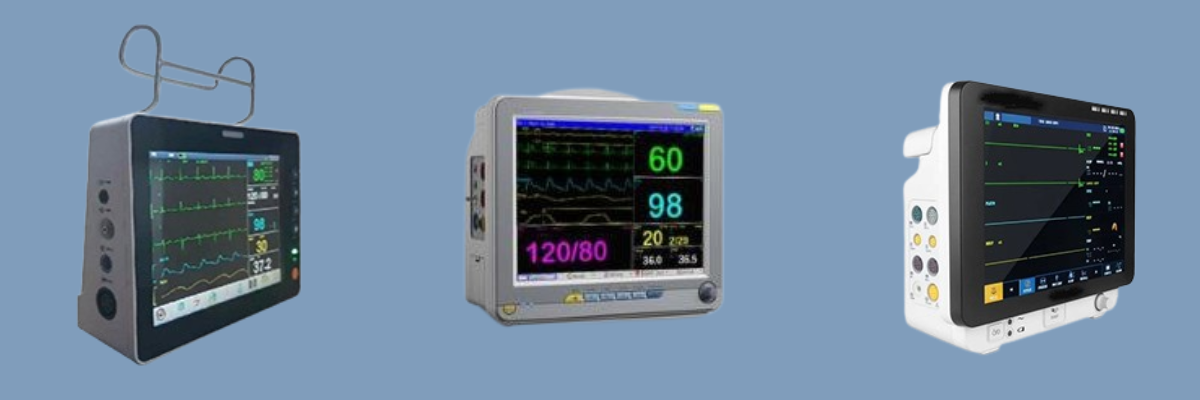The Importance of the Intensive Care Unit

The Importance of the Intensive Care Unit (ICU) In the realm of healthcare, certain areas carry a profound significance, and the Intensive Care Unit (ICU) stands out as one of the most critical. Serving as the heart of complex medical care, ICUs provide a life-saving environment for patients facing severe or life-threatening illnesses and injuries. Here’s a closer look at the importance of the ICU and why it is indispensable in modern medicine.
Specialized Care for Critically Ill Patients
One of the primary roles of the ICU is to provide specialized care for patients who require constant monitoring and intensive treatment. Patients admitted to the ICU often have conditions such as severe respiratory distress, major surgical recovery, organ failure, or traumatic injuries. The ICU is equipped with advanced technology and a dedicated team of healthcare professionals including intensivists, nurses, respiratory therapists, and pharmacists, all trained to manage critical conditions effectively.
24/7 Monitoring and Support
In the ICU, patients receive round-the-clock monitoring, allowing for immediate responses to changes in their conditions. Advanced patient monitoring technologies track vital signs like heart rate, blood pressure, oxygen levels, and more, enabling healthcare teams to detect and address potential complications quickly. This constant vigilance is vital, as critically ill patients can deteriorate rapidly, and timely interventions can mean the difference between life and death.
Multidisciplinary Approach
The complexity of critical care requires a multidisciplinary team approach. In the ICU, specialists from various fields collaborate to ensure comprehensive patient management. This collaboration includes surgeons, cardiologists, neurologists, and nutritionists, among others. This team-oriented model enhances the quality of care by integrating diverse expertise, which is essential for devising tailored treatment plans that address the multifaceted needs of critically ill patients.
Advanced Technology and Treatments
The ICU is home to some of the most advanced medical technology available. From ventilators that assist or fully take over breathing to intravenous pumps that deliver medications and fluids, the tools used in ICUs are designed to provide precise, effective treatment. Additionally, technologies such as dialysis machines and ECMO (extracorporeal membrane oxygenation) play critical roles in treating patients with failing organs, often serving as lifesaving measures for those whose conditions may otherwise be untreatable.
Emotional Support for Patients and Families
The impact of a medical crisis extends beyond the patient to their family and loved ones. The ICU serves as a place of immense emotional strain, where families navigate fear, uncertainty, and decision-making under pressure. Many ICUs now recognize the importance of family-centered care, offering support services that include counseling, access to social workers, and spaces for family members to gather. These support systems can significantly alleviate the psychological burden on families during what is often the most challenging time of their lives.
The ICU’s Role in Recovery
Beyond immediate life-saving interventions, the ICU also plays a crucial role in a patient’s recovery journey. Once stabilized, patients may transition from the ICU to specialized step-down units, where they can continue their recovery with less intensive monitoring. The rehabilitation process often begins in the ICU itself, where occupational and physical therapists may start working with patients to regain their strength and mobility. A successful transition out of the ICU is a promising indicator of positive outcomes for many critically ill patients.
Conclusion
The Intensive Care Unit is more than just a section of a hospital; it is a sanctuary of hope and healing for those facing life-and-death situations. The combination of advanced technology, expert interdisciplinary teams, and unwavering support for both patients and their families makes the ICU a cornerstone of modern healthcare. As we continue to advance in medicine, the significance of the ICU will remain paramount, ensuring that we are equipped to meet the challenges of critical care head-on.
The Importance of the Intensive Care Unit (ICU) In the realm of healthcare, certain areas carry a profound significance, and the Intensive Care Unit (ICU) stands out as one of the most critical. Serving as the heart of complex medical care, ICUs provide a life-saving environment for patients facing severe or life-threatening illnesses and injuries. Here’s a closer look at the importance of the ICU and why it is indispensable in modern medicine.
Specialized Care for Critically Ill Patients
One of the primary roles of the ICU is to provide specialized care for patients who require constant monitoring and intensive treatment. Patients admitted to the ICU often have conditions such as severe respiratory distress, major surgical recovery, organ failure, or traumatic injuries. The ICU is equipped with advanced technology and a dedicated team of healthcare professionals including intensivists, nurses, respiratory therapists, and pharmacists, all trained to manage critical conditions effectively.
24/7 Monitoring and Support
In the ICU, patients receive round-the-clock monitoring, allowing for immediate responses to changes in their conditions. Advanced patient monitoring technologies track vital signs like heart rate, blood pressure, oxygen levels, and more, enabling healthcare teams to detect and address potential complications quickly. This constant vigilance is vital, as critically ill patients can deteriorate rapidly, and timely interventions can mean the difference between life and death.
Multidisciplinary Approach
The complexity of critical care requires a multidisciplinary team approach. In the ICU, specialists from various fields collaborate to ensure comprehensive patient management. This collaboration includes surgeons, cardiologists, neurologists, and nutritionists, among others. This team-oriented model enhances the quality of care by integrating diverse expertise, which is essential for devising tailored treatment plans that address the multifaceted needs of critically ill patients.
Advanced Technology and Treatments
The ICU is home to some of the most advanced medical technology available. From ventilators that assist or fully take over breathing to intravenous pumps that deliver medications and fluids, the tools used in ICUs are designed to provide precise, effective treatment. Additionally, technologies such as dialysis machines and ECMO (extracorporeal membrane oxygenation) play critical roles in treating patients with failing organs, often serving as lifesaving measures for those whose conditions may otherwise be untreatable.
Emotional Support for Patients and Families
The impact of a medical crisis extends beyond the patient to their family and loved ones. The ICU serves as a place of immense emotional strain, where families navigate fear, uncertainty, and decision-making under pressure. Many ICUs now recognize the importance of family-centered care, offering support services that include counseling, access to social workers, and spaces for family members to gather. These support systems can significantly alleviate the psychological burden on families during what is often the most challenging time of their lives.
The ICU’s Role in Recovery
Beyond immediate life-saving interventions, the ICU also plays a crucial role in a patient’s recovery journey. Once stabilized, patients may transition from the ICU to specialized step-down units, where they can continue their recovery with less intensive monitoring. The rehabilitation process often begins in the ICU itself, where occupational and physical therapists may start working with patients to regain their strength and mobility. A successful transition out of the ICU is a promising indicator of positive outcomes for many critically ill patients.
Conclusion
The Intensive Care Unit is more than just a section of a hospital; it is a sanctuary of hope and healing for those facing life-and-death situations. The combination of advanced technology, expert interdisciplinary teams, and unwavering support for both patients and their families makes the ICU a cornerstone of modern healthcare. As we continue to advance in medicine, the significance of the ICU will remain paramount, ensuring that we are equipped to meet the challenges of critical care head-on.







